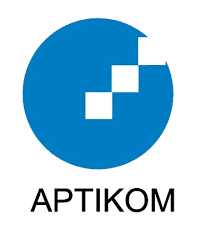Desktop Application Development to Practice Pronunciation
DOI:
https://doi.org/10.18196/eist.v3i2.16868Keywords:
English pronunciation, e-learning, desktopAbstract
English pronunciation studies the techniques of uttering English words, making it one of the most challenging subjects and considered a formality. By mastering proper English pronunciation, there will be no miscommunication when speaking with others or native speakers. Learning pronunciation from a native speaker creates a benchmark for appropriately pronouncing words. Unfortunately, it is overpriced and impractical. Therefore, this study developed an e-learning application to learn English pronunciation. Through a desktop-based e-learning application, users could freely improve their ability and interest in learning pronunciation without time constraints. They could also evaluate their progress. This desktop application could be utilized frequently without incurring excessive fees. In order to acquire study data, the application was assessed by administering a questionnaire to 34 respondents. As many as 27 respondents believed that the application’s content was easily accessible on their individual computers. Additionally, 30 respondents acknowledged that the audio quality was clear. Moreover, 29 respondents asserted that the desktop application encouraged them to improve their pronunciation. In other words, the desktop application for learning English pronunciation was highly useful for independent study and could enhance the comprehension of each learned word
References
Agustina, M. (2013). Pemanfaatan E-Learning sebagai Media Pembelajaran. 12, 8–12. Agustina, M. (2013). Pemanfaatan E-Learning sebagai Media Pembelajaran. In Seminar Nasional Aplikasi Teknologi Informasi (SNATI) (Vol. 1, No. 1).
Botley, S. (2017). why pronunciation is important. https://www.leadinstitute.com.my/blog/2017/7/24/foc us-on-english-ep-3-why-pronunciation-is-important.
Dougiamas, M., & Taylor, P. (2003). Moodle: Using learning communities to create an open source course management system. In EdMedia+ Innovate Learning (pp. 171-178). Association for the Advancement of Computing in Education (AACE).
Faizal M, A., & Alimudin, A. (2018). Penerapan Teknology Speech Recognition Untuk Latihan Pronunciation Bahasa Inggris Melalui Metode Dictation Di Program Studi Multimedia Broadcasting Politeknik Elektronika Negeri Surabaya. NJCA (Nusantara Journal of Computers and Its Applications), 3(1), 50–60. https://doi.org/10.36564/njca.v3i1.63
Handayani, D. (2010). APLIKASI PEMBELAJARAN KOSA KATA DAN PRONUNCIATION BAHASA INGGRIS BERBASIS MULTIMEDIA BAGI SISWA SEKOLAH DASAR (Studi Kasus : SD Negeri Kadipiro No. 144 Surakarta). Jurnal Dinamika Informatika, 2(2), 1–7.
Jefrizal, J., Jaroji, J., & Tediyana, A. (2017). Aplikasi English Teacher Sebagai Alat Bantu Belajar English Conversation Berbasis Android dengan Menerapkan Voice Recognition. INOVTEK Polbeng - Seri Informatika, 2(2), 105. https://doi.org/10.35314/isi.v2i2.197
Renaldo, F. (2007). Moodle dan Fitur fiturnya. Ilmukomputer. com (IKC).
Scorm Explained 201: A deeper dive into SCORM. Diakses pada Oktober 20, 2020, dari https://scorm.com/scorm-explained/



